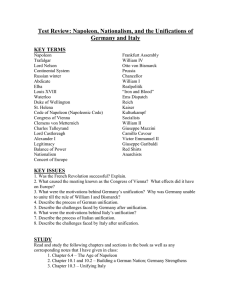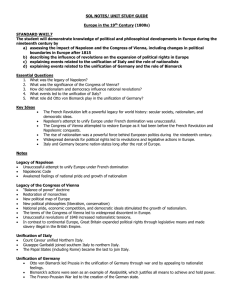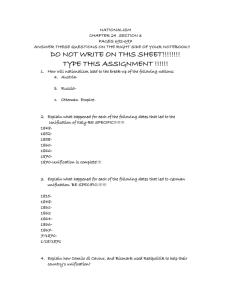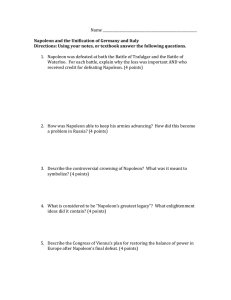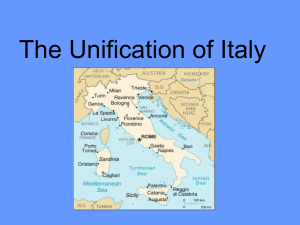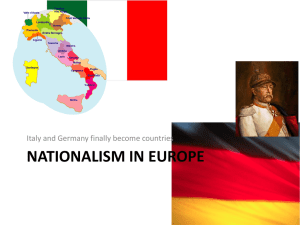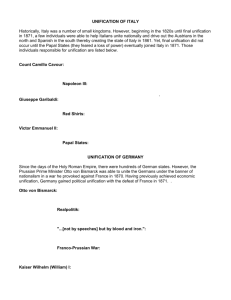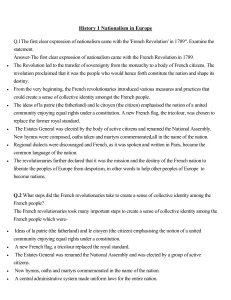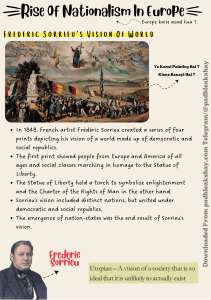Napoleon, the Congress of Vienna, Nationalism & Unification
advertisement
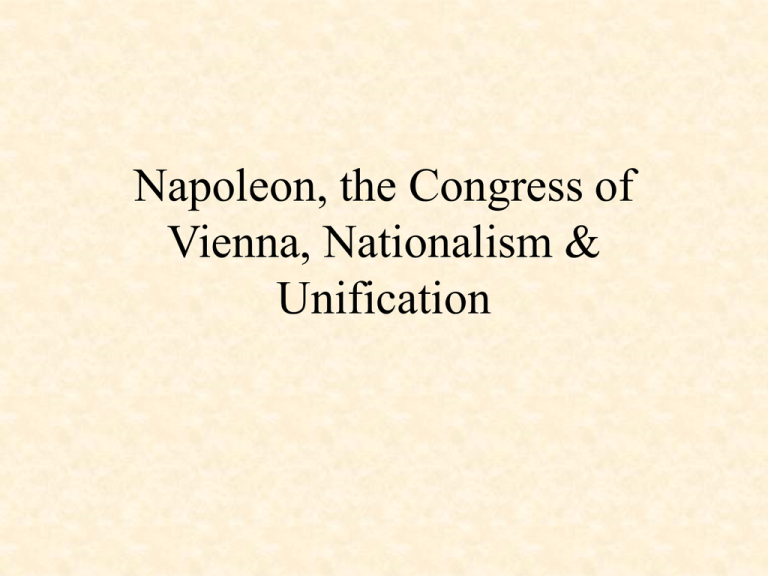
Napoleon, the Congress of Vienna, Nationalism & Unification Napoleon Legacy of Napoleon •Unsuccessful attempt to unify Europe under French domination • Napoleonic Code-law code which is the basis for many European nations today • Awakened feelings of national pride and growth of nationalism in areas under French control Congress of Vienna Legacy of the Congress of Vienna •Led by Klemenz von Metternich the conservative chief minister of Austria-Hungary •“Balance of power” doctrine •Restoration of monarchies •New political map of Europe •New political philosophies: liberalism-advocated democracy, individual liberties, capitalism; conservatism-advocated the restoration of monarchies, the strength of the aristocracy, tight government control of economy Nationalism in Europe National pride, economic competition, and democratic ideals stimulated the growth of nationalism. The terms of the Congress of Vienna led to widespread discontent in Europe especially in Italy and the German states. Unsuccessful revolutions of 1848 increased nationalistic tensions. In contrast to continental Europe, the United Kingdom expanded political rights through legislative means and made slavery illegal in the British Empire. Unification of Italy Unification of Italy •Count Cavour unified Northern Italy. •Giuseppe Garibaldi joined southern Italy to northern Italy. Led the Red Shirts. •The Papal States (including Rome) became the last to join Italy. Unification of Germany Unification of Germany •Otto von Bismarck led Prussia in the unification of Germany through war and by appealing to nationalist feelings. •Bismarck’s actions were seen as an example of Realpolitik, which justifies all means to achieve and hold power. “The ends justifies the means” •The Franco-Prussian War led to the creation of the German state.
